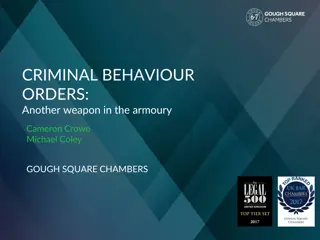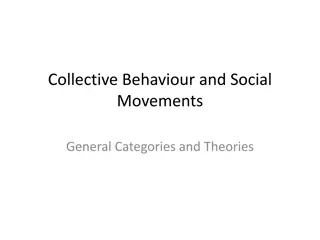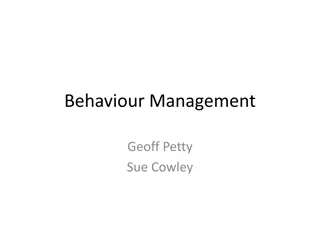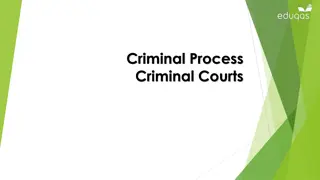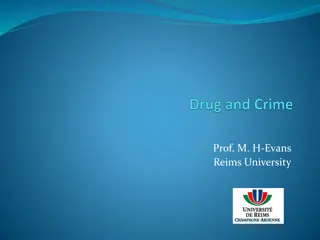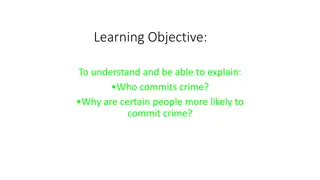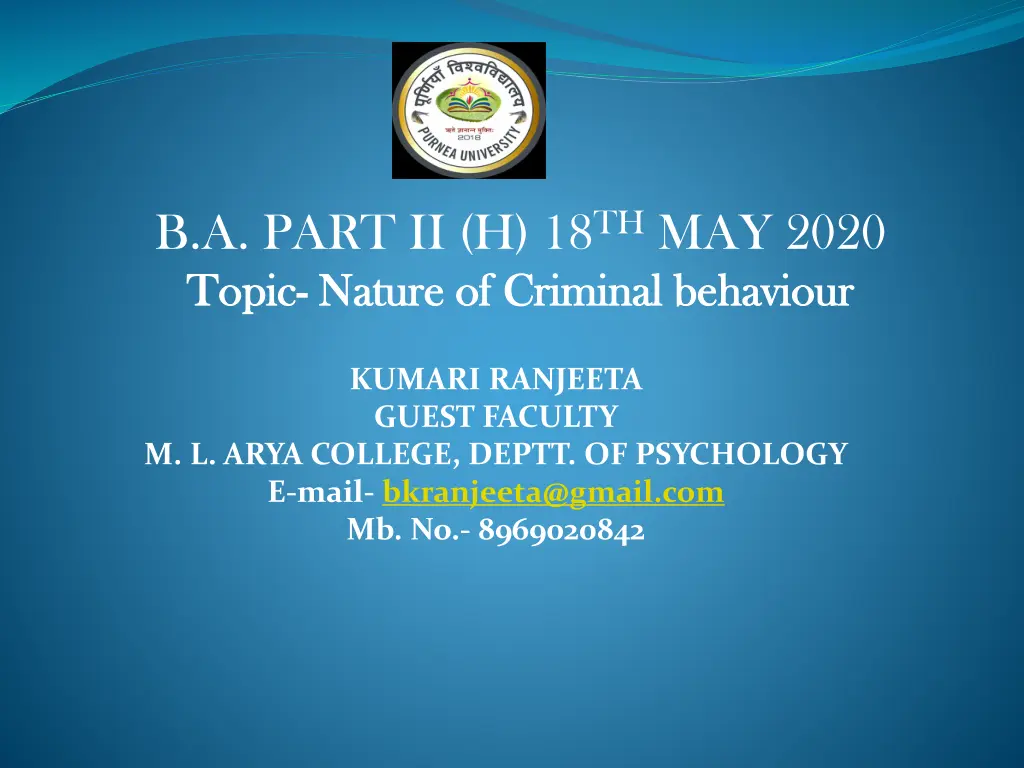
Understanding Criminal Behavior: Psychological Insights and Contributing Factors
Explore the nature of criminal behavior, as influenced by psychological theories and factors such as failures in development, learned aggression, personality traits, and the relationship to mental illness. Examine the impact of intoxicants on decision-making and self-control in committing criminal acts, including property crimes and violent crimes. Gain insights into different types of crime, from murder and assault to arson and burglary.
Download Presentation

Please find below an Image/Link to download the presentation.
The content on the website is provided AS IS for your information and personal use only. It may not be sold, licensed, or shared on other websites without obtaining consent from the author. If you encounter any issues during the download, it is possible that the publisher has removed the file from their server.
You are allowed to download the files provided on this website for personal or commercial use, subject to the condition that they are used lawfully. All files are the property of their respective owners.
The content on the website is provided AS IS for your information and personal use only. It may not be sold, licensed, or shared on other websites without obtaining consent from the author.
E N D
Presentation Transcript
B.A. PART II (H) 18TH MAY 2020 Topic Topic- - Nature of Criminal Nature of Criminal behaviour behaviour KUMARI RANJEETA GUEST FACULTY M. L. ARYA COLLEGE, DEPTT. OF PSYCHOLOGY E-mail- bkranjeeta@gmail.com Mb. No.- 8969020842
19 MAY 2020 B.A. PART II (H) PAPER III,UNIT IV (UNDERSTANDING DEVIANT BEHAVIOUR) NATURE OF CRIMINAL BEHAVIOUR Criminal behavior refers to conduct of an offender that leads to and including the commission of an unlawful act. Psychological theories of crime say that criminal behavior is a result of individual differences in thinking processes. There are many different psychological theories, but they all believe that it is the person's thoughts and feelings that dictate their actions. As such, problems in thinking can lead to criminal behavior.
19 MAY 2020 B.A. PART II (H) PAPER III,UNIT IV (UNDERSTANDING DEVIANT BEHAVIOUR) These general assumptions are that crime is a result of: 1. Failures in psychological development Some people run into trouble because they didn't develop, or grow, the way that others normally do. 2. Learned behaviors of aggression and violence If someone is surrounded by violence and aggression, they are more likely to become violent and aggressive themselves, because they have learned that those behaviors are okay.
19 MAY 2020 B.A. PART II (H) PAPER III,UNIT IV (UNDERSTANDING DEVIANT BEHAVIOUR) 3. Inherent personality traits There are some characteristics that criminals tend to share with each other, and some psychologists believe that there are certain personality traits that predispose someone towards criminal behavior. 4. Relationship of criminality to mental illness Some people with psychological disorders end up committing crimes. While this isn t the case for all people with mental illness, there are a higher-than- normal percentage of criminals with mental illness.
19 MAY 2020 B.A. PART II (H) PAPER III,UNIT IV (UNDERSTANDING DEVIANT BEHAVIOUR) Some intoxicants, such as alcohol, lower our inhibitions, while others, such as cocaine, overexcite our nervous system. In all cases, the physiological and psychological changes caused by intoxicants negatively impact our self-control and decision-making. An altered state can lead directly to committing a criminal act. Criminal behavior, or offending, is generally defined as any overt or covert law-breaking conduct in a given country or state, punishable upon conviction. The two main broad categories are property crimes (e.g., fraud, theft) and violent crimes (e.g., domestic violence, robbery, homicide, and sex crimes).
19 MAY 2020 B.A. PART II (H) PAPER III,UNIT IV (UNDERSTANDING DEVIANT BEHAVIOUR) 6 types of crime:- violent crime. murder, assault, kidnapping, manslaughter, rape. property crimes. arson (to an extent), vandalism, burglary, theft, shoplifting. public order crimes. white collar crime. organized crime. high tech crime.





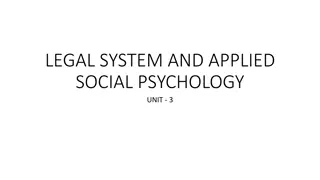
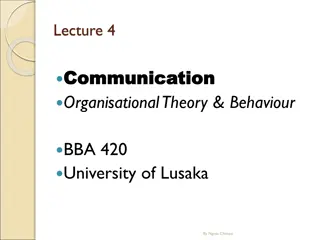


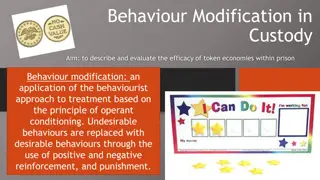
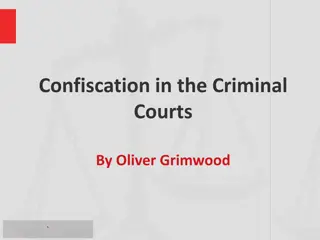
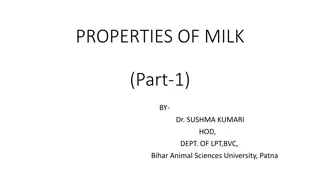
![Briefing on the Criminal Procedure Amendment Bill [B12-2021] to the Portfolio Committee on Justice and Correctional Services](/thumb/157093/briefing-on-the-criminal-procedure-amendment-bill-b12-2021-to-the-portfolio-committee-on-justice-and-correctional-services.jpg)
